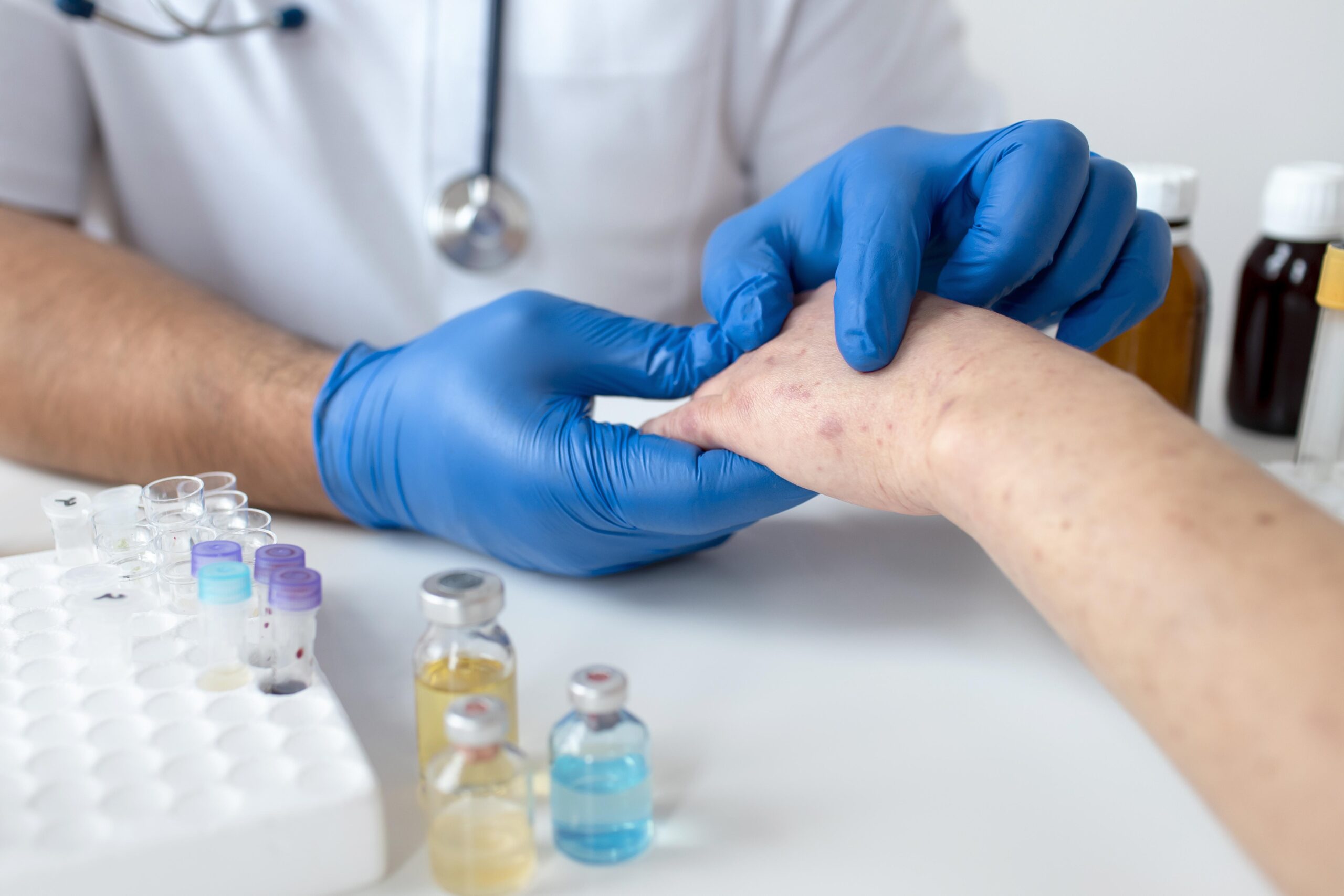Hives, also known as urticaria, is a skin condition characterized by raised, itchy welts or wheals on the skin. These welts can vary in size and shape and may appear and disappear rapidly. Hives can be triggered by various factors and often result from an immune system response.
Causes of Hives:
Allergies:
Common allergens, such as certain foods (nuts, shellfish, etc.), medications, insect stings, or pollen, can trigger an allergic reaction leading to hives. To get help with skin issues associated with hives you can consult a Dermatologist in Karachi.
Medications:
Some medications, including antibiotics, nonsteroidal anti-inflammatory drugs (NSAIDs), and certain blood pressure medications, may cause hives as a side effect.
Infections:
Viral or bacterial infections, such as the common cold, urinary tract infections, or strep throat, can sometimes trigger hives.
Insect Bites or Stings:
Insect bites or stings can lead to the development of hives in susceptible individuals.
Physical Factors:
Exposure to physical stimuli like pressure, cold, heat, sunlight, or exercise can trigger hives in some people (physical urticaria).
Stress:
Emotional stress or anxiety can contribute to the development of hives in certain individuals.
Autoimmune Conditions:
Some autoimmune disorders, such as lupus or rheumatoid arthritis, may be associated with chronic hives.
Underlying Health Conditions:
Certain underlying health conditions, such as thyroid disorders or hormonal changes, may contribute to the development of hives.
Symptoms of Hives:
Itching or Burning Sensation:
The affected areas are often accompanied by itching, burning, or stinging sensations.
Transient Nature:
Hives typically appear suddenly and may disappear within a few hours, only to reappear in a different location.
Swelling:
Swelling may occur around the eyes, lips, and in severe cases, in the throat, leading to difficulty breathing.
Treatment of Hives:
Antihistamines:
Over-the-counter or prescription antihistamines can help alleviate itching and reduce the severity of hives.
Corticosteroids:
In severe cases, a short course of oral corticosteroids may be prescribed to reduce inflammation.
Avoidance of Triggers:
Identifying and avoiding the triggers that cause hives is an essential part of management.
Cool Compresses:
Applying cool compresses or taking cool baths can provide relief from itching and help reduce inflammation.
Anti-itch Creams:
Over-the-counter creams containing ingredients like calamine or menthol can help soothe itching.
Epinephrine (for Severe Cases):
In cases of severe allergic reactions or anaphylaxis, epinephrine may be administered to counteract the symptoms.
Prescription Medications:
For chronic hives, healthcare professionals may recommend medications such as omalizumab or cyclosporine.
It’s important for individuals experiencing hives to consult with a Dermatologist in Lahore, especially if the hives are severe, persistent, or accompanied by other symptoms like difficulty breathing. A thorough evaluation can help determine the underlying cause and guide appropriate treatment.
